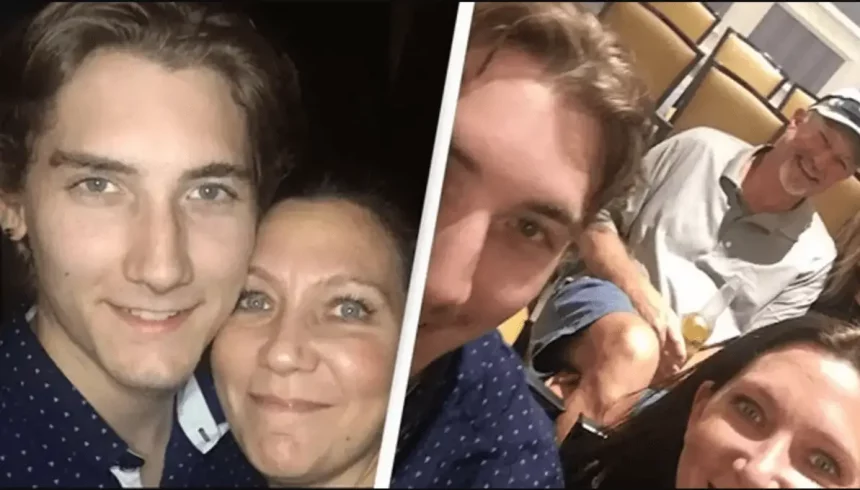In an instant, life can be completely transformed, for better or for worse. This is evident in the remarkable tale of Christopher Precopia, a young man who faced a potentially life-altering accusation of a crime he did not commit. Amidst the chaos and uncertainty, a mundane act—taking a selfie—emerged as the unexpected key to his freedom.
As we delve into Christopher’s journey from accusation to exoneration, we are not only witness to a personal triumph but also to a profound reflection on how the digital age influences justice and truth. In a world where our digital interactions can have unforeseen consequences, Christopher’s story serves as a poignant reminder of the power of everyday technology in the most critical of situations.
The Nightmarish Accusation: Christopher’s world was shattered when his ex-girlfriend accused him of a violent crime, exposing him to the threat of a near-century behind bars. Arrested and bewildered, he found himself entangled in a legal battle with limited means of defense. The relentless march of the criminal justice system raised questions about the reliability of evidence in a digitally-driven world.
The Night of the Alibi: Amidst the turmoil, a seemingly simple selfie taken by Christopher’s mother became a beacon of hope. This digital evidence, complete with time and location data, provided an indisputable alibi for Christopher’s whereabouts on the fateful night. In a stunning turn of events, the selfie contradicted the accuser’s timeline, showcasing the power of digital data in legal disputes.
The Role of Digital Evidence: The use of digital evidence has become a cornerstone of modern justice systems, offering objectivity and accessibility in legal proceedings. From photographs to text messages, digital evidence can provide clarity and support for legal arguments, as seen in Christopher’s case. However, challenges such as verification and privacy must be navigated carefully in the digital landscape.
Legal Battle and Its Costs: The journey to prove innocence came at a steep price for Christopher and his family, both financially and emotionally. The toll of wrongful accusations extends far beyond the courtroom, impacting mental health and life opportunities. This underscores the need for systemic reforms to support those wrongfully accused and mitigate long-term consequences.
Tips for Protecting Yourself Legally with Digital Tools: In an era where digital footprints can make or break legal cases, individuals can leverage digital tools to safeguard themselves. Consistent documentation of activities, understanding privacy settings, and secure data storage are essential practices. Seeking legal guidance on the use of digital evidence can also ensure a strong defense in legal disputes.
Christopher Precopia’s story is a testament to the intricate intersection between technology, justice, and personal resilience. As we navigate the complexities of the digital age, his journey serves as a compelling narrative on the transformative power of digital evidence in the pursuit of truth and justice.






